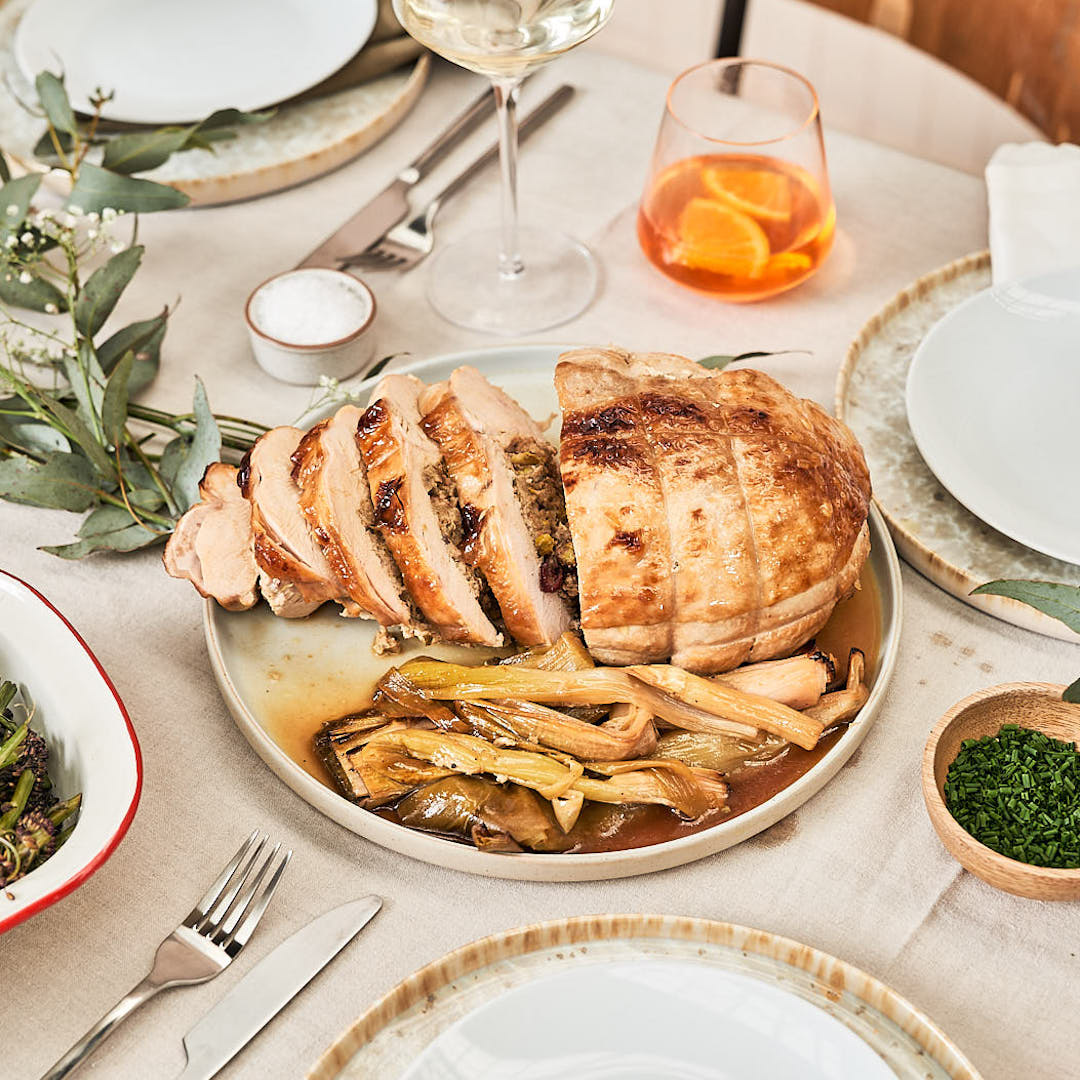Your Cart is Empty
Delivery Across Victoria | Free delivery over $150
Our poultry is sourced from farms who feed their flocks non-GMO feed. Let’s talk about why this is an important choice for both us and the animals.
GMO stands for ‘genetically modified organisms’. Usually made in a lab by transferring a single gene from one organism into another, GMOs are engineered by scientists in order to produce grains & crops that are resistant to pesticides, insects, viruses and bacteria.
This has been beneficial to mass agriculture because it’s resulted in higher yields, lower production costs and less cost to the consumer, and even a longer shelf life.
However, genetically modifying feed is still a relatively recent development in agriculture, originating in the 1990s. This means we don’t have any long-term data on the effects of GMOs on both humans and animals, whether they’re consumed directly or via an animal raised on GMO feed.
Corn and soybeans are the most commonly modified crops, and they also happen to make up a large part of the grain used as feed on poultry farms around the world. This means that much of the poultry commercially available has been raised on GMO feed (it’s important to clarify that giving an animal GMO feed does not make that animal itself a GMO).
In order to make informed choices about exactly what you’re eating, it’s important to know of the potential downsides to GMOs.
GMOs have an altered DNA structure that would never be found in nature, which is why they’re resistant to insects and disease, but this may also affect antibiotic resistance, as well as biodiversity if cultivated crops cross-germinate with wild plants (once released into the environment, these organisms can’t be recalled).
GMO crops may also be less nutrient-dense than their organic counterparts, meaning the animals won’t be their healthiest, and won’t in turn offer as much nutritional value or flavour when we eat them.
Feeding animals non-GMO feed means we’re one step closer to making our food as pure, natural and healthy as possible, for not only ourselves, but the planet as well.
Now that we know why it’s ideal to raise livestock on non-GMO feed, let’s have a look at our naturally-fed poultry range ahead of the festive season.
Turkey is the most popular choice, but there’s always room on the table for chicken, duck & goose, too. Read on to learn about our local, sustainable suppliers and pick up some cooking tips & recipes.
Free-Range Turkey
It doesn’t get more traditional than a roast turkey for Thanksgiving and Christmas!
All Hagen’s turkey (and most of our chicken) comes from Bendele Farm near Gympie, Queensland, renowned for their ethical, sustainable and organic farming practices. Their free-range poultry enjoy 24/7 access to pasture, where they are left to frolic and scratch in the dust, grazing on natural vegetation and organically-accredited grain.
Bendele free-range turkeys are available from Hagen’s both stuffed and unstuffed, as whole trussed birds or as a boneless roast. So, once you have your turkey, how should you cook it?
For a classic roast, the tender, juicy texture pairs really well with ourhouse-made cranberry sauce andchicken gravy.
Cousin Pat's Dry-Brined Turkey is a simple recipe for a beautifully-browned, juicy turkey bursting with umami flavour. You also have to try Susie Hagen’sboneless turkey with lemon, cranberry & pistachio stuffing — she’s been making it for the family for over 12 years!
Free-Range Goose
We source our free-range whole geese locally from UGoose farm in Gippsland, where heritage-bred Emden geese are raised chemical-free on luscious pastures.
UGoose are a small and passionate family business who know everything there is to know about raising happy, healthy geese with a high fat content perfect for longer cooking. When you’re roasting your goose, save the rendered fat and level up your side dish game with crispy goose fat potatoes!
Free-Range Ducks
We’re proud to offer free-range ducks from Great Ocean Ducks near Port Campbell, Victoria. Farmers Gred & Jodi Clarke supply notable restaurants in Melbourne and beyond, including Anchovy, Grossi Florentino, Hazel, Nomad, MoVida, Kazuki, Oster & Agostino.
Known for their distinctive tenderness and flavour, their flock of Aylesbury ducks — a rare English table breed — are paddock-reared on a diet of fresh fruits and a healthy brew of soaked local grain.
